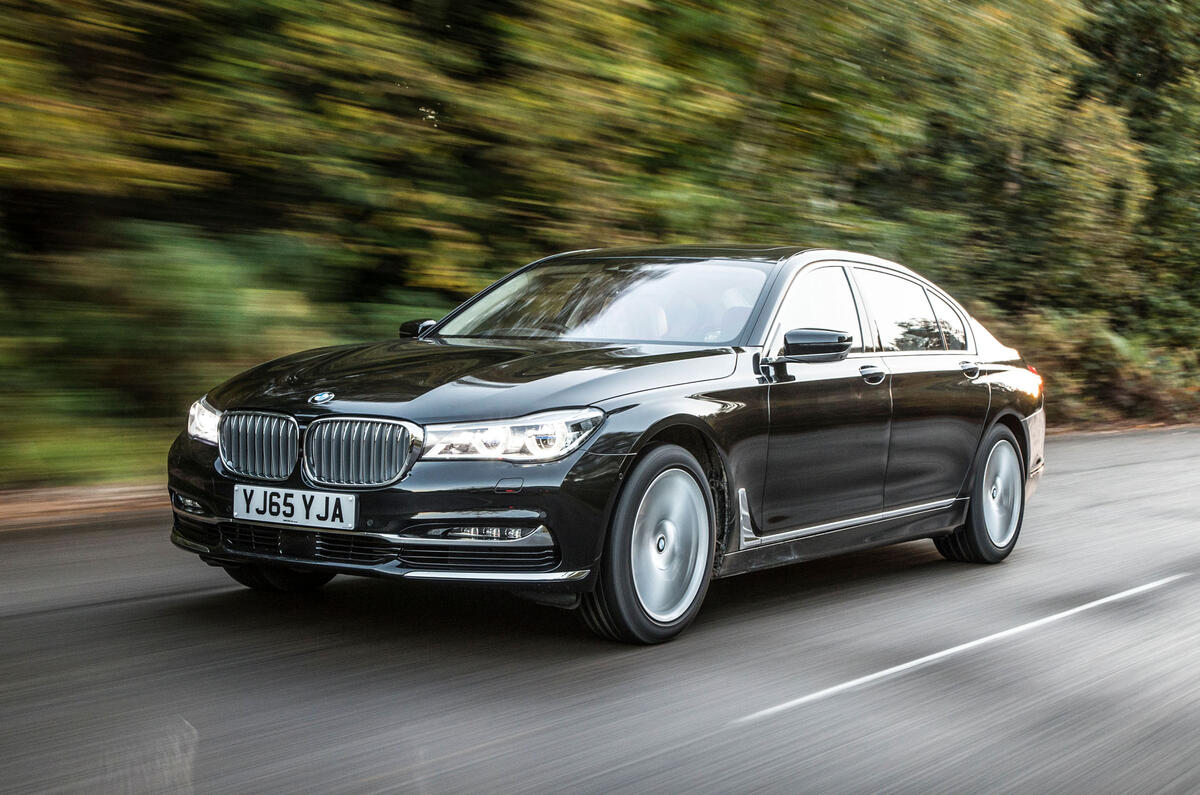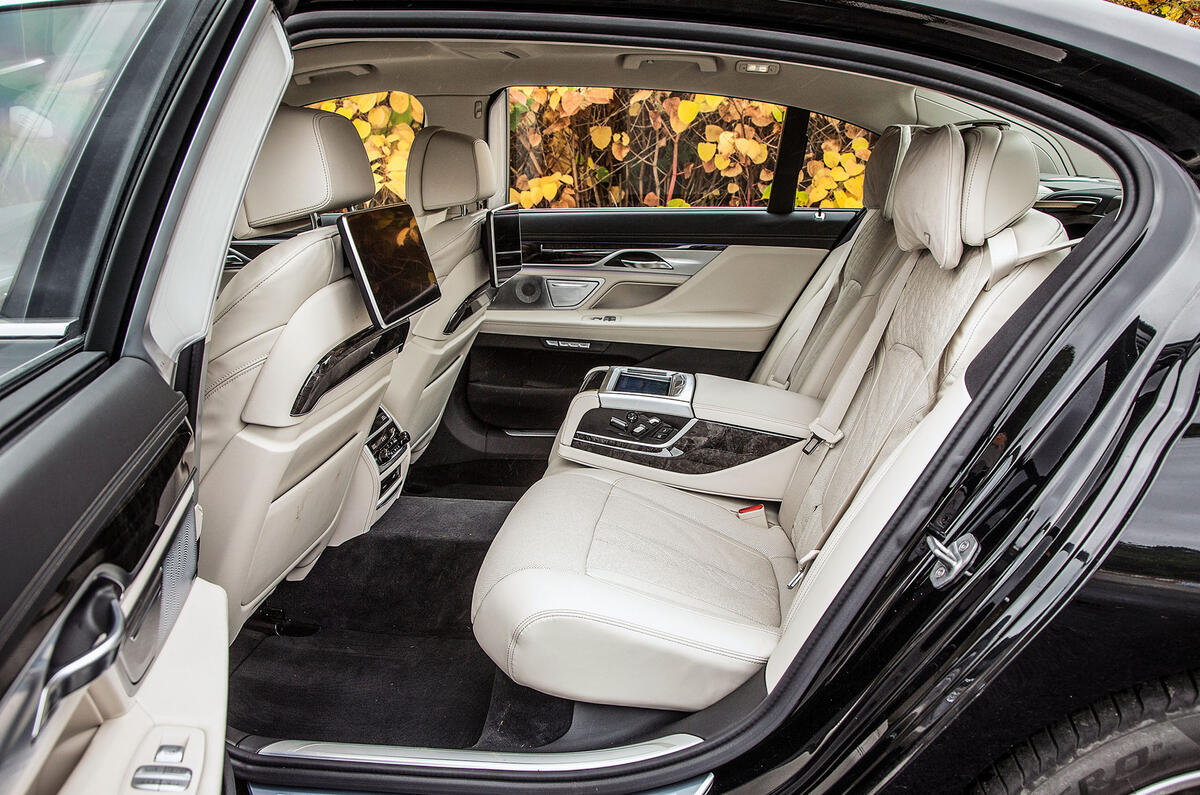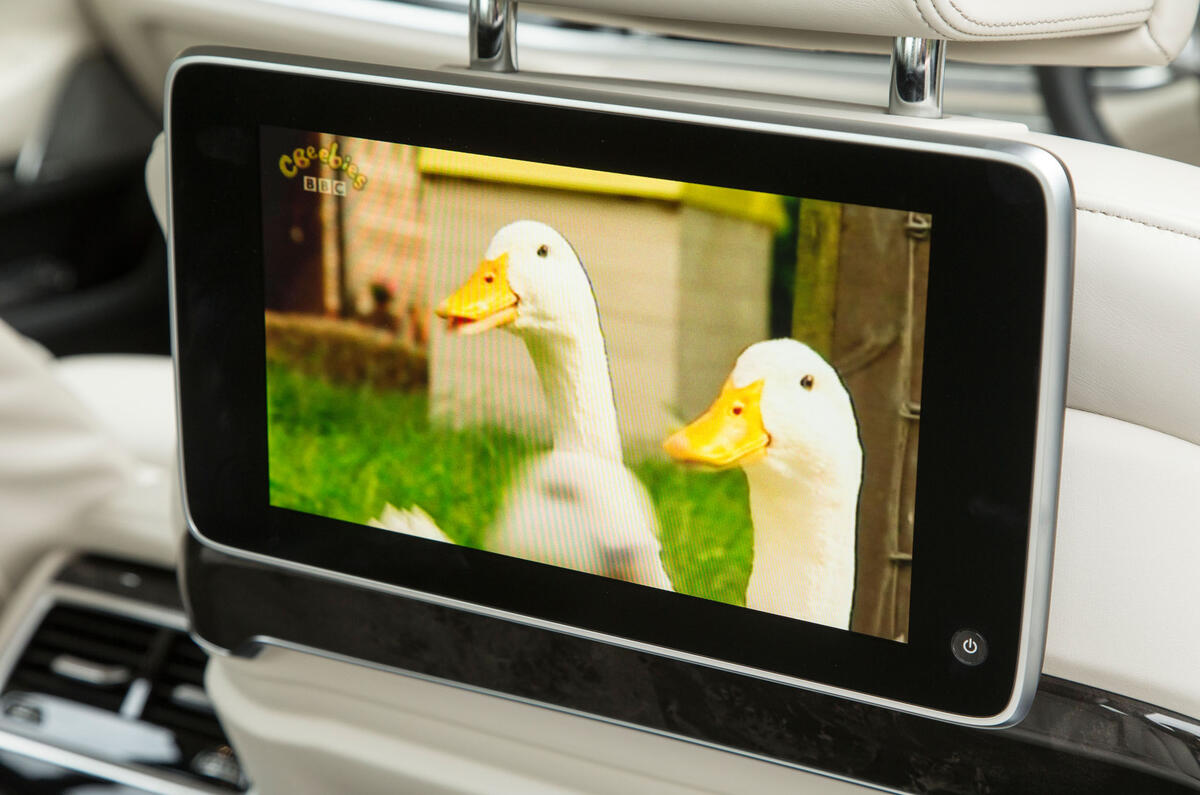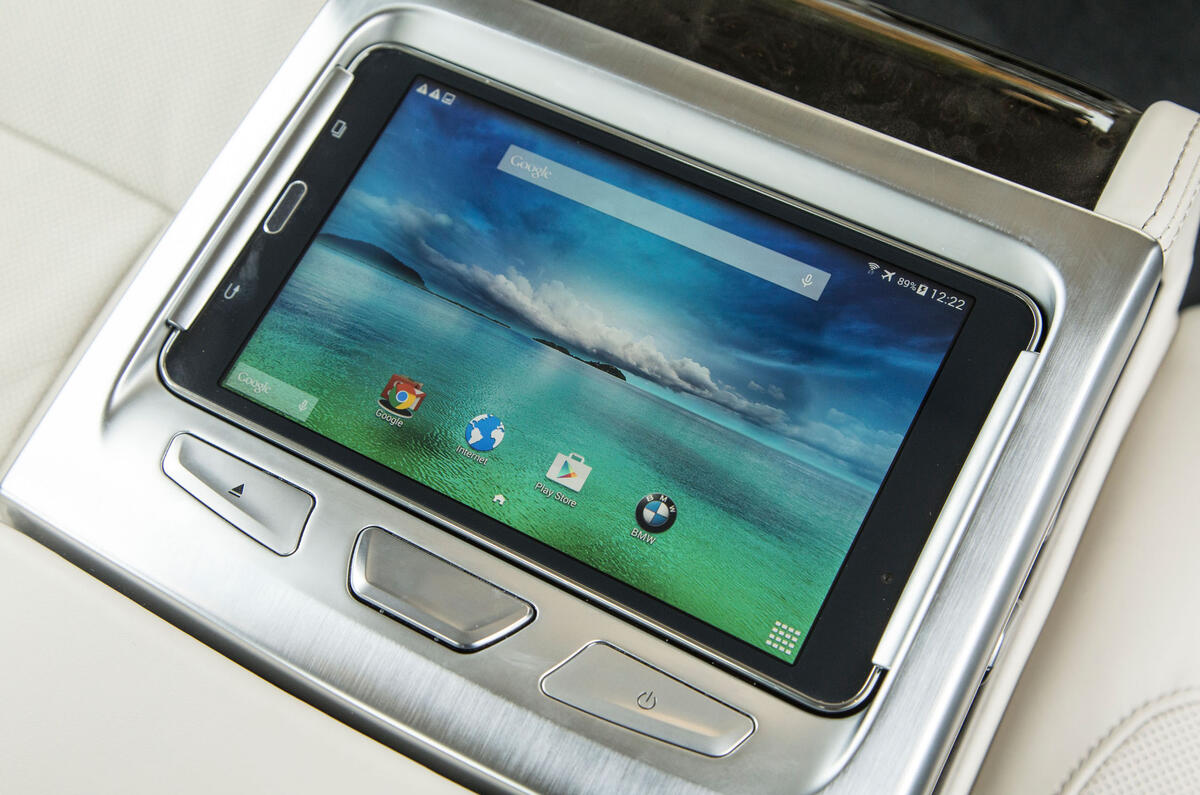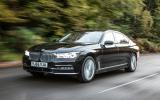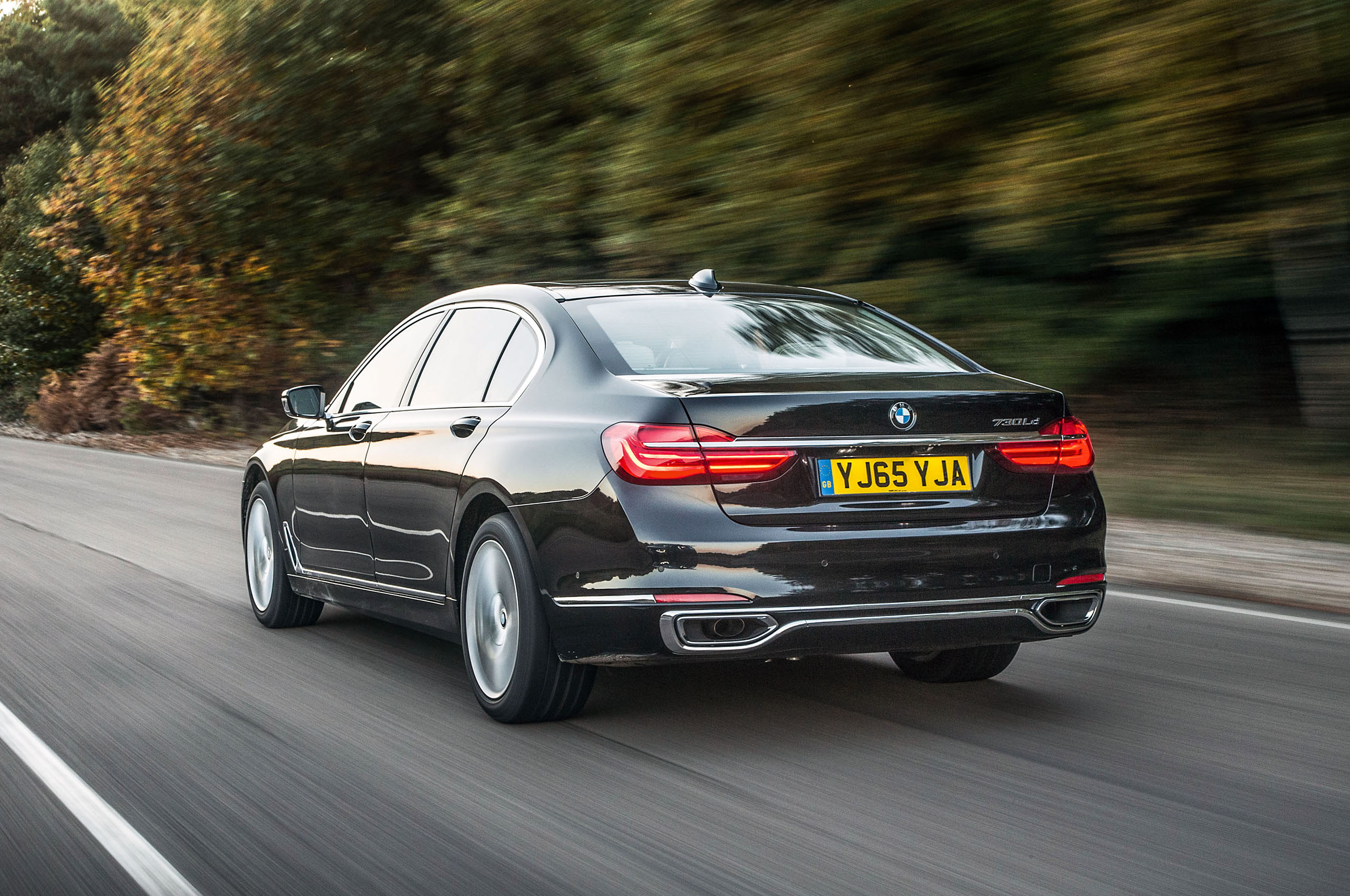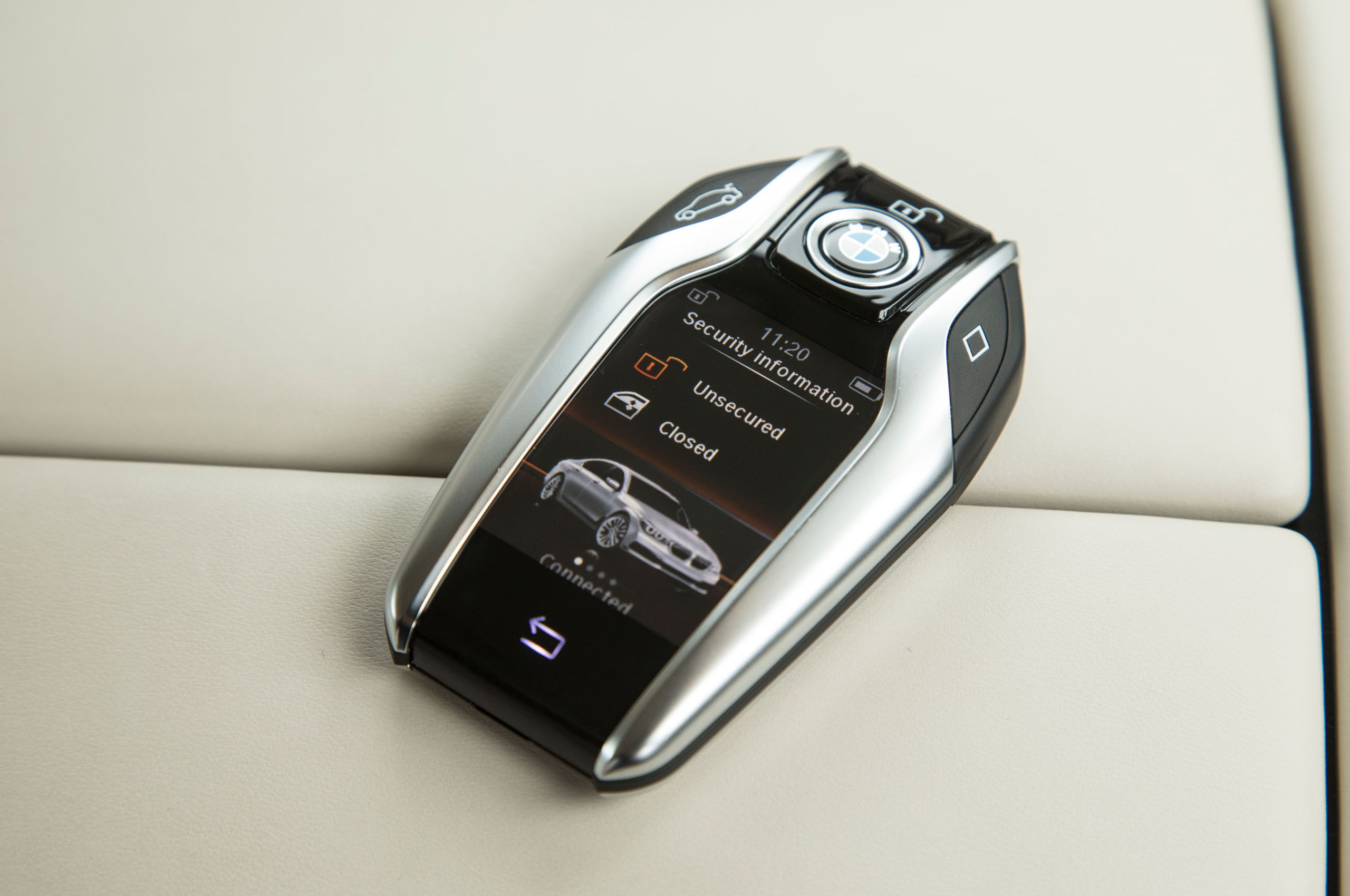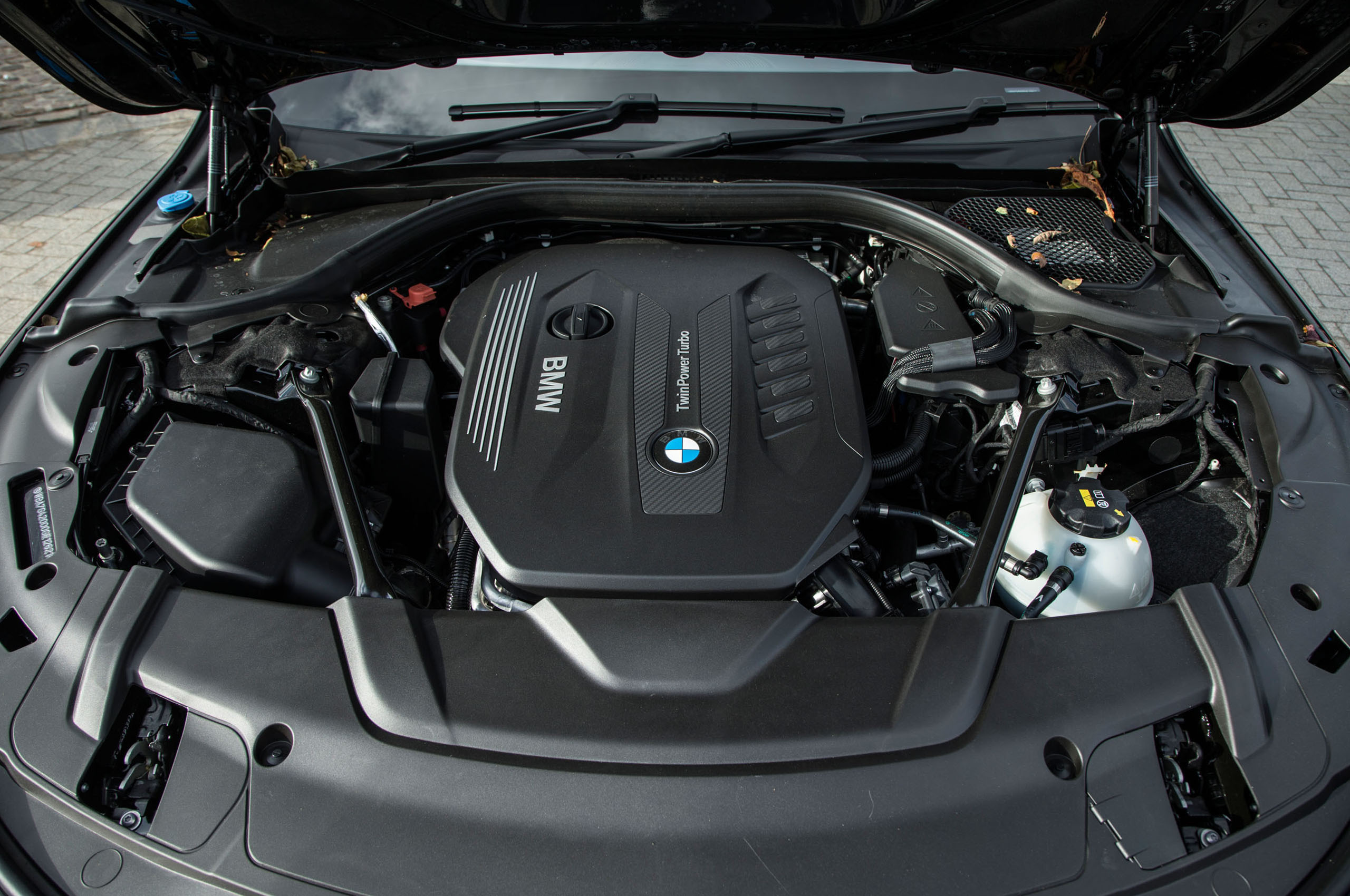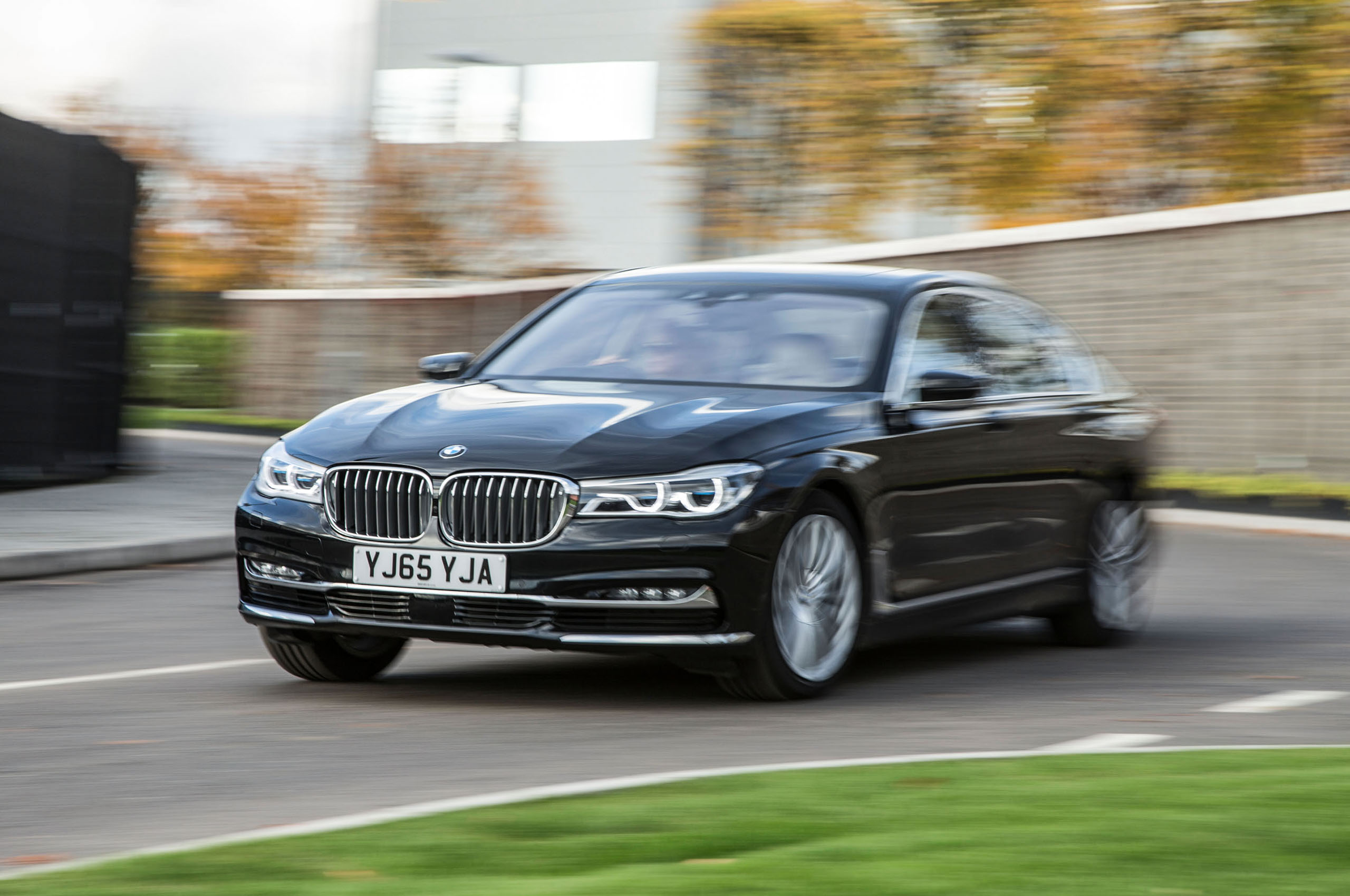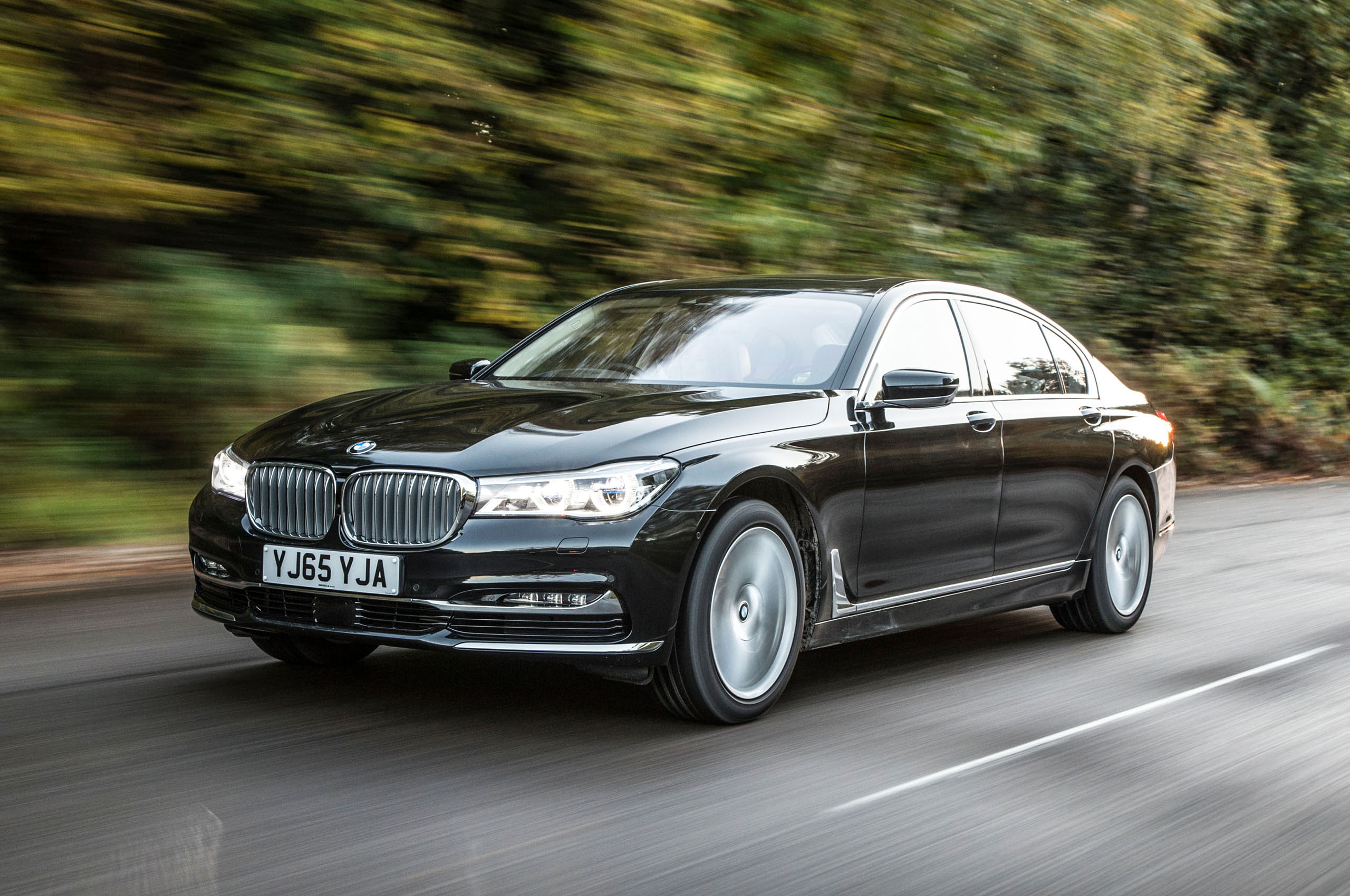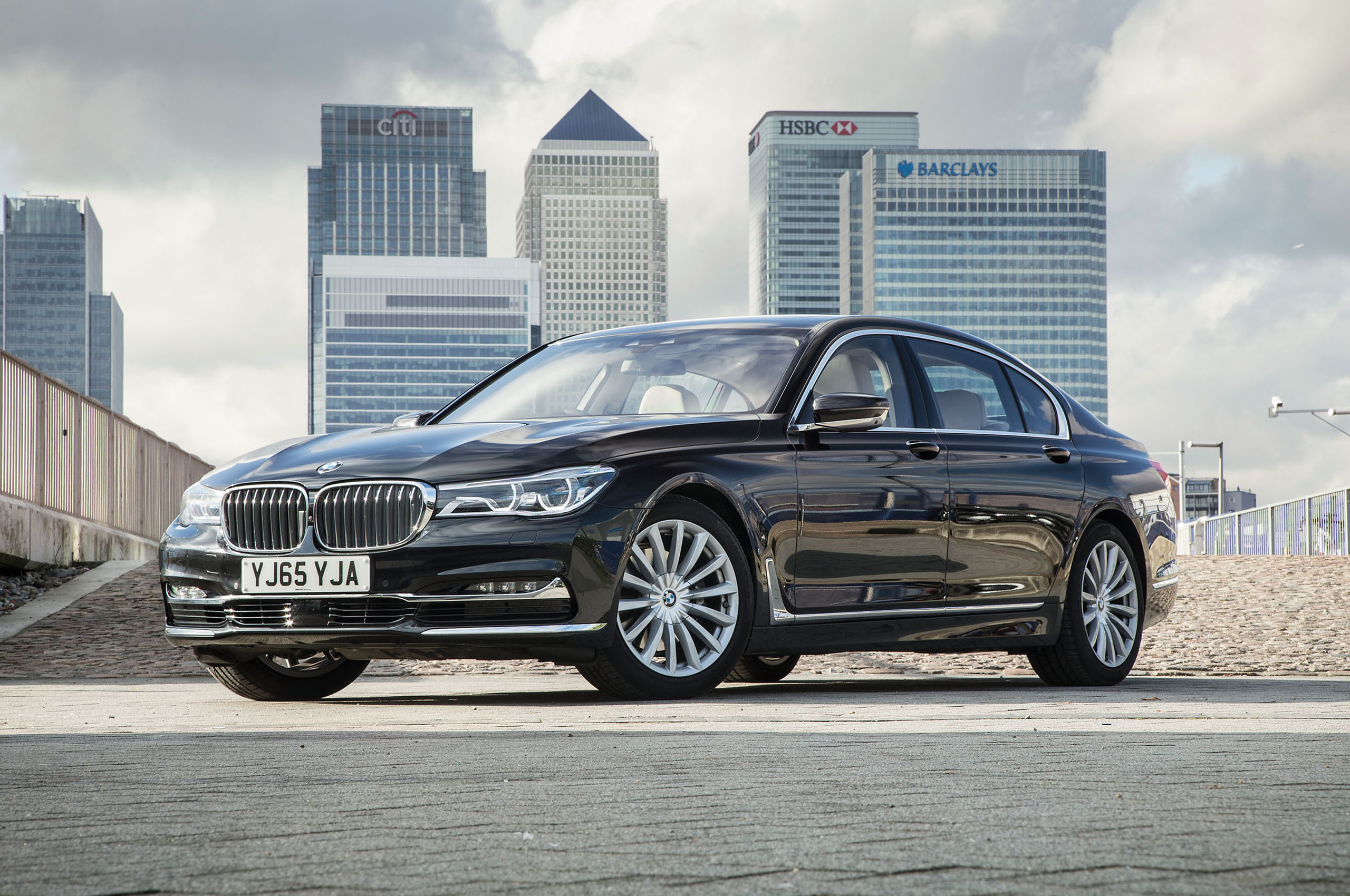It’s here more than anywhere that the BMW 7 Series needs to excel. Outstanding refinement, rolling comfort and isolation are expected of any full-sized luxury saloon, and we’ll come on to those. But before dynamic factors enter the equation, the BMW cockpit has to feel like an inviting, luxurious and well-appointed place in which to travel – and in the all-important back seats, at least, it does.
The car passes hurdle number one by a nose, matching the long-wheelbase Mercedes S-Class precisely on rear leg room (860mm by our typical measure) and beating it on head room by a clear 30mm. The Mercedes offers its driver marginally more maximum leg room, but both cars are more than competitive on that score, while the BMW scores with the taller, longer boot. The boot of our test car was partially filled with a removable drinks chiller, which was securely mounted yet fairly easy to detach, leaving more than enough space for daily or touring use.
Two options are key to maximising the richness of your passenger experience in the 7 Series: BMW’s Executive Package (£2850) and the Rear Seat Comfort Package (£4815). Our test car had both and therefore came with heated and massaging comfort seats, multimedia screens hanging from both front seatbacks and a tablet PC with which to control just about everything you might want to control from the back seat, from the ferocity of your seat massage to changing the channel of the in-car digital television. It also doubles as a web browser and can be removed if necessary.
Up front, the 7 Series’ designers have gone to impressive lengths to conjure a sense of integrity, effortless usability and well-being. The silver switchgear, though plain looking, feels solid under your fingertips, the head-up display is 75 per cent larger than on other BMWs and the colour-selectable ambient lighting is a lavish treat after dark. But the fascia layout looks too similar to those of BMW’s other saloons to feel really special, and the absence of genuinely exotic material finishes is disappointing.
You’d expect nothing short of the kitchen sink here — but somehow the car spectacularly over-delivers. All cars get the BMW Professional Multimedia and Navigation system, operating via a larger display than other BMWs enjoy. And for the first time on a BMW, you can control it three different ways: through the familiar iDrive controller, through a touchscreen interface or, as an option, through gesture control.
As for the respected trim levels, equipment is based on the engine you choose. 730ds will come with 18in alloys, LED head and rear lights, reversing camera, front and rear parking sensors, and BMW's display key. Inside along the all-singing-and-dancing iDrive system the 730d gets quad-zone climate control, DAB radio, wireless phone charging and heated front and rear seats.
Opt for the long-wheelbase 730d, 740Li or 740Ld and you get a panoramic sunroof and rear roller blind, while upgrading to the Exclusive trim ensures you get gesture control, soft close doors and BMW's comfort rear seats.
The hybrid 7 Series get a few additions which include predominantly a charging cable and a multitude of eDrive apps and settings, while the M Sport models get plenty of M badges, a sporty bodykit and 19in alloys all included. The range-topping M760Li gets numerous M Division changes including an aggressive bodykit, a rear spoiler and quad-pipe exhaust system, among other small tweaks.
The system recognises up to six gestures through a 3D sensor at the base of the control display. Rotate an outstretched finger in a circular motion to adjust audio volume; jab at the screen and you can answer a call. The idea is that these gestures can be performed without taking your eyes off the road — and after a bit of practice, the theory holds water.
BMW’s Bowers & Wilkins 1400W Diamond audio system, with its 10-channel amp and 16 speakers, sounds very good, although perhaps not as good with low frequencies as Mercedes’ ‘Frontbass’ system.
In the long-wheelbase car, rear-seat passengers can use an optional 7.0in tablet computer to control the entertainment system or browse the internet.


